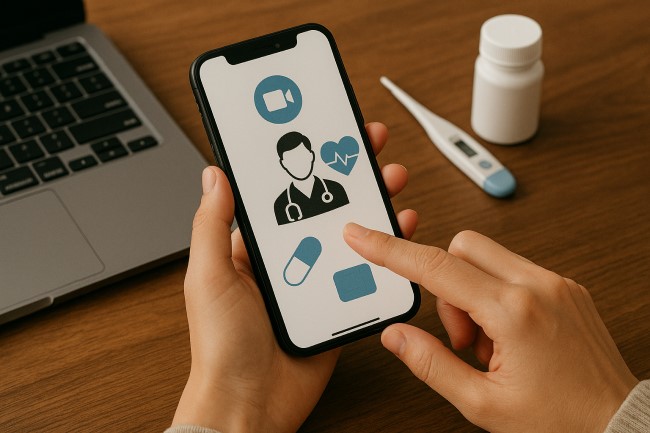The Digital Dose: How Technology is Reshaping Modern Healthcare Access

In a world where nearly everything is just a click away, it’s no surprise that the healthcare sector is evolving alongside our digital habits. From shopping to banking, technology has transformed how we interact with essential services. Healthcare is no different—digital advancements are now making it easier, faster, and more convenient to access the care we need.
The Rise of Healthcare on Demand
Healthcare has traditionally required long waits, fixed appointments, and trips to physical locations. But the digital age has introduced a different standard—one shaped by speed, flexibility, and control. Consumers are no longer content to wait weeks to speak with a professional or collect their prescriptions. They expect the same on-demand access that streaming and food delivery services have normalised.
Video consultations, health monitoring apps, and round-the-clock chat services are examples of how care has adapted. Patients now look for services that respond quickly, provide clear information, and offer help at the touch of a button. This shift reflects a broader cultural trend: people want healthcare that fits into their lives, not the other way around.
Benefits of Going Digital with Prescriptions
Among the most widely adopted digital health services is the ability to order prescriptions online. For many, this has turned a time-consuming task into a simple, secure experience. Whether you’re managing long-term medication or needing something more immediate, having access to an online pharmacy’s website offers a level of convenience that suits modern life.
Beyond ease of use, there’s also increased accessibility. Those living in remote areas or with limited mobility now have better access to medicines without needing to travel. And in times when public health is a concern, reducing unnecessary in-person visits helps everyone stay safer. People are drawn to services that are reliable, discreet, and efficient, making digital prescriptions a trusted option for everyday needs.
Addressing Trust and Regulation in the Digital Age
Digital healthcare services operate under strict rules in the UK to ensure patient safety and quality. These regulations help maintain high standards without making the experience feel clinical or complicated. Most platforms are transparent about who they work with, how your data is protected, and what qualifications their teams hold.
The move online hasn’t removed the need for trust—it’s just changed how it’s earned. Secure payment systems, verified practitioners, and clear information all contribute to confidence. People want to know they’re being looked after, and the best digital services make this clear from the first click.
What the Future Holds for Digital Healthcare
As technology continues to evolve, so too will the ways we access care. Artificial intelligence is already helping to streamline patient queries and flag potential health risks. Wearable tech is tracking everything from heart rates to sleep cycles, providing data that can support personalised advice. Looking ahead, we may see even more tools that connect seamlessly with professionals and offer insights that support proactive wellbeing.
Digital healthcare isn’t about replacing the personal touch—it’s about making it easier to reach. Future developments are likely to build on this foundation, offering smarter, faster ways to keep people informed and in control.
Technology has transformed how we approach everyday life, and healthcare is firmly part of that shift. Whether it’s booking a consultation from the sofa or getting medicines delivered to your door, digital platforms are helping people manage their health in practical, safe ways. As services grow and improve, they offer a clearer path to better health, one that fits around how we really live.


